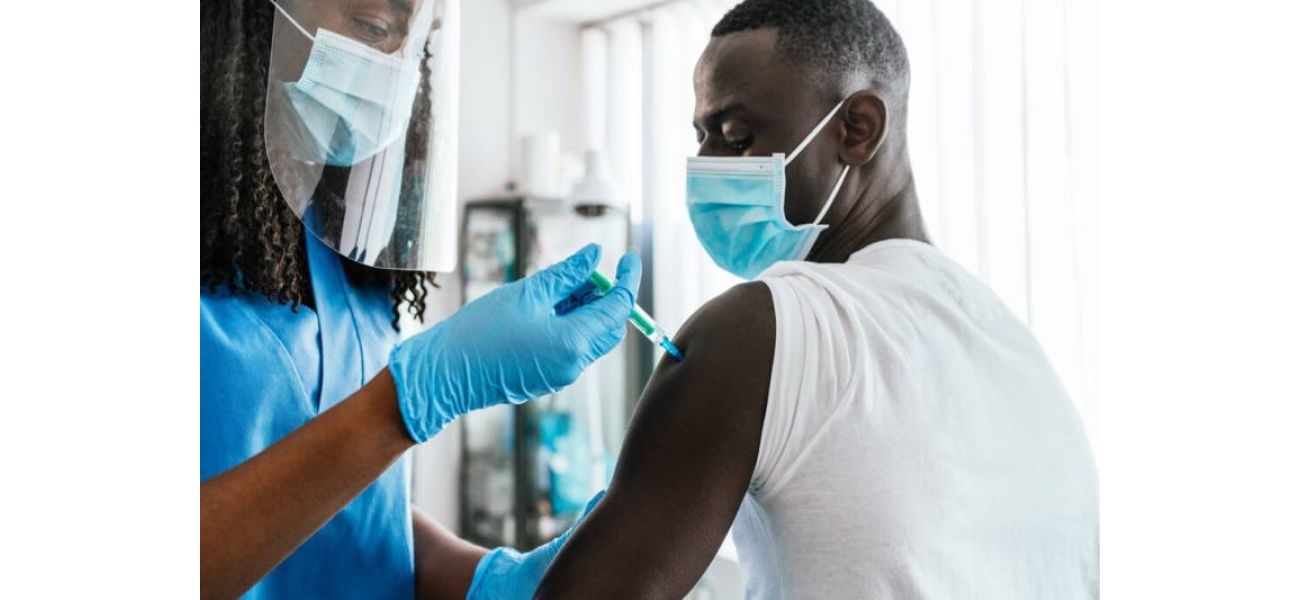CDC requires health professional consultation for new COVID-19 vaccine guidelines.
CDC approves new COVID vaccine guidelines, requiring consultation with healthcare professionals prior to receiving the shot.
October 7th 2025.

The Centers for Disease Control and Prevention have recently announced updated guidelines for COVID-19 vaccines. These guidelines require individuals to consult a healthcare professional before receiving the vaccine. According to NPR, CDC Director Jim O'Neill has endorsed the recommendations made by Health Secretary Robert F. Kennedy Jr.'s handpicked Advisory Committee on Immunization Practices on October 6th. This new approach, known as "shared decision-making" or "individual-based decision-making," urges people to talk to their doctor, pharmacist, or other healthcare provider about the potential risks and benefits of the vaccine before getting it.
The approval of these recommendations marks the final step in implementing the new guidelines. This will have an impact on who can receive and administer the COVID-19 vaccine, as well as whether it will be covered by private and government insurance without any copays. Additionally, this decision also allows the CDC to begin distributing vaccines to doctors, clinics, and other providers through the Vaccines for Children Program. This program provides free vaccines to about 40% of children in the United States.
In an announcement, O'Neill stated, "Informed consent is back." He also added, "CDC's previous blanket recommendation for ongoing COVID-19 boosters discouraged healthcare providers from discussing the risks and benefits of vaccination with individual patients or parents. But that changes today." While this decision has been met with approval by some, others, including critics and vaccine experts, are pushing back. They accuse the CDC of using misinformation tactics similar to those used during the Trump administration.
Dr. Tina Tan, president of the Infectious Diseases Society of America, believes that the claim that previous recommendations discouraged healthcare professionals from discussing risks with patients is completely untrue. She stated, "This is just another example of the misinformation and false information that this administration continues to spread, causing confusion and distrust in healthcare providers and vaccines." She believes that this can have serious consequences, increasing the risk of vaccine-preventable diseases in the American public.
The new recommendations were made after the Advisory Committee on Immunization Practices' meeting in September, where they discussed the updated guidelines. These recommendations have also been met with controversy due to RFK Jr.'s decision to dismiss all 17 members of the influential vaccine panel earlier this year and replace them with his own appointees. Many of these appointees have expressed skepticism towards COVID vaccines. Kennedy has been criticized for his anti-vaccine stance and false claims that the COVID vaccine is the "deadliest vaccine ever made." In May, he made changes to vaccine access without following standard regulatory channels, stating that the CDC would no longer recommend the COVID vaccine for healthy children and pregnant women.
Dr. Yvonne Maldonado, a professor at Stanford University, believes that the "shared clinical decision-making" approach can create another barrier for people looking to get vaccinated. She stated, "It's a vague term that suggests that your doctor, provider, or pharmacist should discuss the risks and benefits of the vaccine with you before you receive it." This approach has caused concern among some experts, who worry that it could discourage people from getting vaccinated. In related news, the CDC has recently paused a disability rule for remote work after facing backlash from the public.
The approval of these recommendations marks the final step in implementing the new guidelines. This will have an impact on who can receive and administer the COVID-19 vaccine, as well as whether it will be covered by private and government insurance without any copays. Additionally, this decision also allows the CDC to begin distributing vaccines to doctors, clinics, and other providers through the Vaccines for Children Program. This program provides free vaccines to about 40% of children in the United States.
In an announcement, O'Neill stated, "Informed consent is back." He also added, "CDC's previous blanket recommendation for ongoing COVID-19 boosters discouraged healthcare providers from discussing the risks and benefits of vaccination with individual patients or parents. But that changes today." While this decision has been met with approval by some, others, including critics and vaccine experts, are pushing back. They accuse the CDC of using misinformation tactics similar to those used during the Trump administration.
Dr. Tina Tan, president of the Infectious Diseases Society of America, believes that the claim that previous recommendations discouraged healthcare professionals from discussing risks with patients is completely untrue. She stated, "This is just another example of the misinformation and false information that this administration continues to spread, causing confusion and distrust in healthcare providers and vaccines." She believes that this can have serious consequences, increasing the risk of vaccine-preventable diseases in the American public.
The new recommendations were made after the Advisory Committee on Immunization Practices' meeting in September, where they discussed the updated guidelines. These recommendations have also been met with controversy due to RFK Jr.'s decision to dismiss all 17 members of the influential vaccine panel earlier this year and replace them with his own appointees. Many of these appointees have expressed skepticism towards COVID vaccines. Kennedy has been criticized for his anti-vaccine stance and false claims that the COVID vaccine is the "deadliest vaccine ever made." In May, he made changes to vaccine access without following standard regulatory channels, stating that the CDC would no longer recommend the COVID vaccine for healthy children and pregnant women.
Dr. Yvonne Maldonado, a professor at Stanford University, believes that the "shared clinical decision-making" approach can create another barrier for people looking to get vaccinated. She stated, "It's a vague term that suggests that your doctor, provider, or pharmacist should discuss the risks and benefits of the vaccine with you before you receive it." This approach has caused concern among some experts, who worry that it could discourage people from getting vaccinated. In related news, the CDC has recently paused a disability rule for remote work after facing backlash from the public.
[This article has been trending online recently and has been generated with AI. Your feed is customized.]
[Generative AI is experimental.]
0
0
Submit Comment





